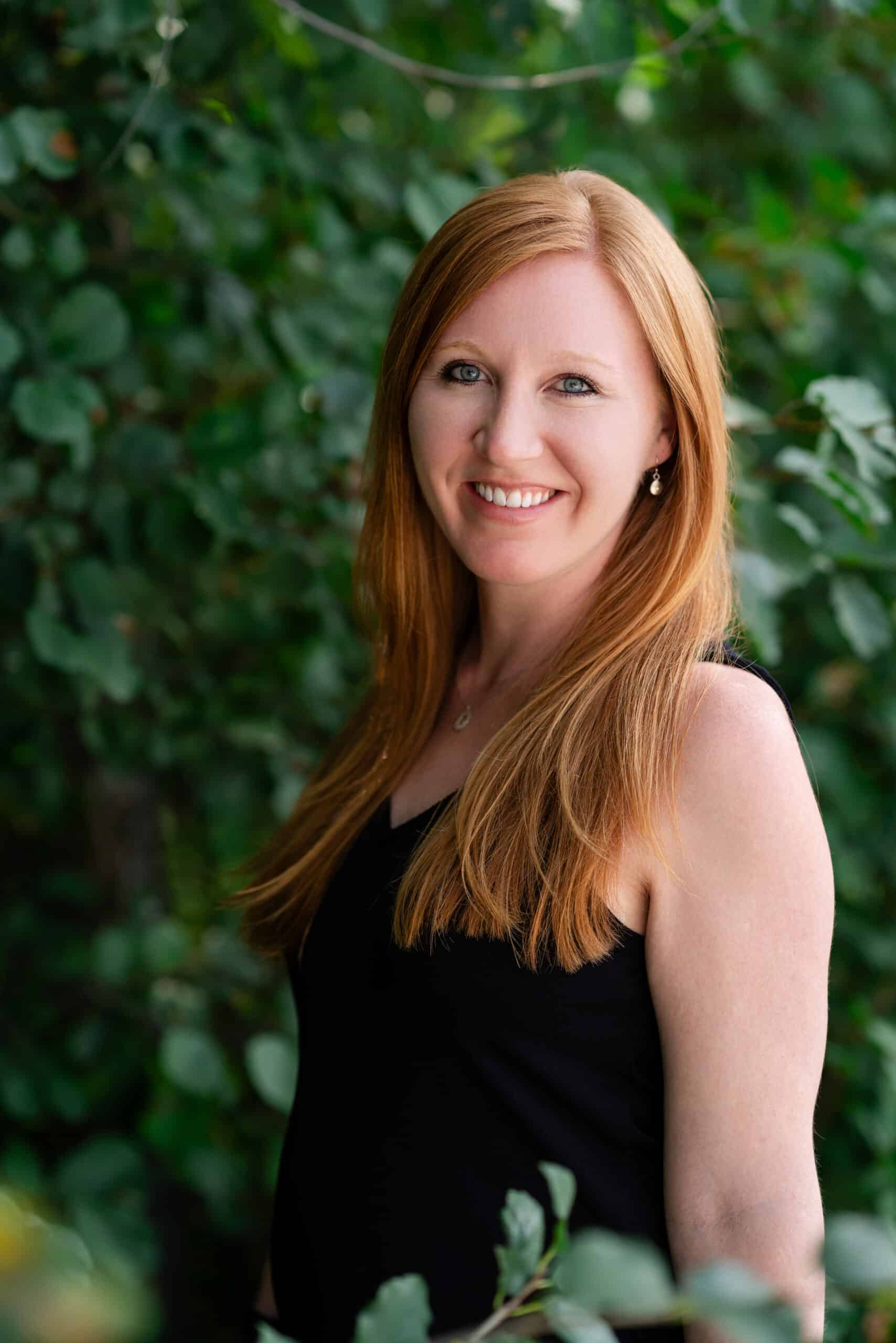When Brittany began working as an English teacher, she never imagined she would later pivot to consulting Fortune 500 companies on sustainability strategies. But through Michigan Engineering’s Energy Systems Engineering (ESE) master’s program, Brittany turned her growing interest in sustainability into a thriving career.

Brittany’s background is unique. Before studying ESE, she was an English major, a Teach for America alum, and a high school teacher. “I definitely pivoted pretty hardcore from English to engineering,” she said with a laugh. But her path to Michigan grew from her experiences in the classroom.
After teaching English for a couple of years, Brittany became the first Science Instigator & Inquirist for a PK-12 school in Baton Rouge, LA. Her goal was to get students—with a focus on middle school girls—excited about science, technology, engineering, and math (STEM). Many of the programs Brittany initiated focused on energy systems, the environment, and sustainability. “In the process of inspiring my students, I inspired myself. Shortly after that, I found myself perusing the UM prospective student page,” she shares.
For Brittany, the ESE program provided a crucial foundation. “I didn’t have technical skills coming from English. I knew I wanted to have the depth of technical expertise to sell myself in the job market later. That was a gap I was missing.”
Her ESE coursework delivered exactly that. “I was very attracted to the depth that Energy Systems Engineering would go into. I didn’t want to just learn about systems and policies—I wanted to understand how these systems work, so when I consult a company on implementing sustainability initiatives, I can actually explain what that means and how the data supports my recommendations.”
Brittany immersed herself in hands-on opportunities that prepared her for the real world throughout her time at Michigan. Not only did she earn her ESE degree, she also received a graduate degree in Sustainable Systems from the School for Environment and Sustainability (SEAS) at UM. She also was a graduate student instructor for industrial ecology and the inaugural president of the Graduate Student Advisory Committee for her academic unit.
Additionally, Brittany sought industry opportunities through ESE.
“I had an incredible round of internships,” she said. “I worked with Dow Chemical, Johnson Controls, and NSF International, where I eventually started my career as a sustainability consultant. I also received scholarships like the Bosch Sustainability Fellowship. I was exposed to a lot of really amazing companies and contacts while I was at the University of Michigan, and never turned down an opportunity to get involved outside of coursework.”
The capstone project, a key part of the ESE program, also gave Brittany a direct pathway into her first job. “I did my capstone with NSF International, where I designed a fully integrated risk assessment tool for evaluating risks and opportunities in supply chains for food and agriculture companies.” Ultimately, Brittany’s capstone project led to a job offer.
Today, Brittany co-leads Positive Scenarios Consulting, a boutique sustainability consulting firm she co-founded three years ago with fellow Michigan Engineering graduate Diana Bach. The firm has grown to a team of 12 working with global brands like Carhartt, Beyond Meat, Peloton, Dell Technologies, and Conagra Brands.
“We help companies mitigate and manage their environmental impacts—whether that’s greenhouse gas inventories, setting climate reduction goals, or navigating emerging climate reporting regulations,” she explained.
Brittany attributes much of her success to the strong technical foundation she gained in the ESE program. “There’s a huge gap in sustainability consulting for people with deep technical knowledge. There’s a lot of focus on management consulting or a qualitative lens. But the world really needs good data and people who understand how to use data to drive positive climate action.”
Reflecting on her time in the program, Brittany offers advice for anyone considering the Energy Systems Engineering degree. First and foremost, she encourages students to take full advantage of everything the University of Michigan has to offer.
From her experience, Brittany recommends getting involved in activities outside of the degree program. She says, “I was on the board of the Ross Energy Club at the Ross School of Business. I was the only ESE student on that board, which gave me a chance to network and get to know people completely outside of my program.”
She also emphasizes the importance of being intentional about the skills you want to develop, especially when working on team projects. Brittany says, “Ask yourself, ‘How do you want to practice your skills to not only get a job, but perform well at that job?’ I knew I was good at presenting because I was an English teacher, so I focused my energy elsewhere to make sure I was well-rounded.”
And for anyone hesitant to take the next step, Brittany’s advice is simple: apply, even if you’re unsure. “I almost didn’t apply to ESE because I thought I wasn’t smart enough,” she admits. “But I applied, got in, and was so relieved and excited. I almost missed an opportunity of a lifetime because I lacked confidence. It’s a lesson I reflect on often. So, even if you’re not sure, give it a chance. You won’t regret applying.”
Main Office:
2401 Plymouth Road, Suite A/B
Ann Arbor, MI 48105
(734) 647-7200
[email protected]